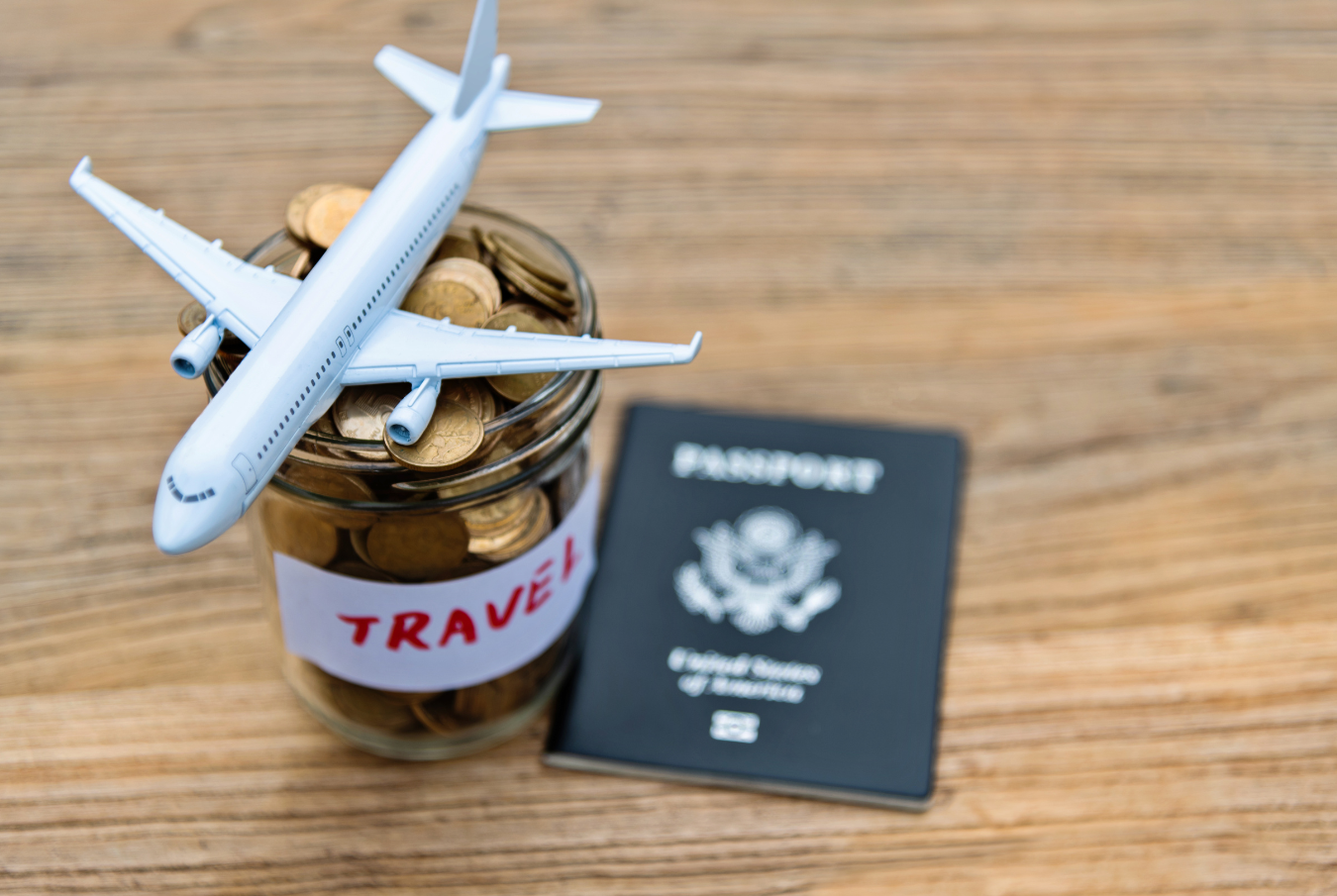
I like to travel as much as I can. Two factors hinder my ability to travel: Time and money. The time factor is probably obvious for a working mum, so let’s dig into the money side.
The way we travel might not be luxurious, but travel is a luxury, and we have to be very organized with our money to make it happen. We have a specific bank account (sinking fund) that we call “Holiday Fun”, where money is automatically transferred weekly. It steadily builds up over time. Knowing what the yearly amount we will save gives us a budget to work to.
We track it in our PocketSmith Calender, and that helps us prepare to have the money we need all saved up before we take our holiday. Saving into this account never stops, which is why we can financially manage to take such regular holidays.
With some strategic planning and a sprinkle of frugality, you can embark on the holiday of your dreams within a budget.
My financial planning begins with looking at the cost of the last trip we took or at a trip I know will be similar to the one we intend to take. If you have no such comparison, ask your friends!
Conveniently, PocketSmith keeps a meticulous record of our travel, and I always go back and look at the costs of:
This information helps me set a very realistic budget that I can make adjustments to for my next trip. It also reminds me of the costs we tend to forget about when planning a trip, such as putting the dog into boarding kennels or parking the car at the airport. Past spending helps you make informed decisions that align with your financial goals. Be honest about how much you can realistically afford to spend on your holiday, and work out how you will pay for it before you leave.
Regarding holiday travel, timing can be your best friend or your worst enemy. If you can be flexible with your travel dates, you might snag some deals. These deals are to be found if you can avoid peak travel times, such as major holidays and school holiday periods, which is when prices tend to skyrocket. Simple tricks like booking mid-week flights or traveling to a destination in the off-peak seasons can lower costs significantly, leaving you with more money to splurge on experiences at your destination. The country you are visiting functions all year round, not just in peak season!
Undoubtedly, accommodation is often the most significant travel expense you will incur. While it’s tempting to book a fancy hotel, consider alternative accommodation options to save big because there are many affordable choices, from apartments to cottages to a room in someone’s house. Staying outside of the city center can also be friendlier on your wallet. Plus, you’ll have the chance to explore hidden gems that tourists often miss.
Another strategy we employ is to stay in cheaper places for most of our trip but then splurge a little for a night or two at a fancier place. I have to say, I sleep equally well in both places, meaning that extra money spent doesn’t necessarily mean a better night’s sleep.

The world is a big place, and we all use transportation differently. Research the best way to get around in the destination you are heading to and be prepared to do things a little differently than you would at home. I live in a town with no public transport, so I have to drive or walk everywhere. But drop me in Singapore, and I’m taking public transportation! Don’t discount walking, something I love to do. It gives me a good overview and helps me get my bearings and see things I would otherwise miss.
Getting around your destination can quickly add up, so be savvy about your transportation choices. If you need to rent a car, compare prices from different providers (perhaps make it part of a bundle deal when you book your flights) and book in advance to secure the best deal.
I remember one of the first big trips I ever took, a month in the United States. We’d agreed that we would not buy gifts for the family while away, figuring that we would end up with too much luggage and, with a large family, too much cost. But we quickly realized that buying gifts for others is all part of the international experience, but it’s easy to get carried away with souvenir shopping.
Ultimately, we wrote a list of people to buy for and set a budget. We loved tracking down a little something for all our friends back home. This included finding local markets and avoiding tourist traps. We even visited second-hand stores for really unique treasures. Ironically, you can find a lot of unwanted local tourist merch in shops like this! If you find yourself in a place where haggling is encouraged, then go for it, but always be respectful that the vendors are trying to make a living and that negotiation is a normal part of the process.
An easy way to trip yourself up and go over budget is if you are not viewing an expense in your own currency. We inadvertently did this on a cruise we took. For the first 24 hours, we thought we were spending in the currency of the country we embarked from until a friendly traveler sidled up to us when we were shopping onboard and said, “Do you realize all prices are in USD?”. Rookie mistake, and one we won’t repeat twice.
A currency conversation app on your phone is necessary when traveling so you stay within budget. Throughout our travels, I check my PocketSmith app just to check that all is as it should be. It’s a safe way to check our spending without compromising our banking security.
Once I’ve settled back in at home, I always take the opportunity to jump on PocketSmith and categorize all of the transactions I’ve not had time to view during my holiday. It is important to tidy all this up while your memory is fresh so that you can create the framework for planning the next trip. I’ll always add lots of notes to each expense, just to jog my memory; plus, of course, you can add photos and upload receipts, too.
All of this data has helped us narrow down what is important to us when we holiday so that each time we go, we get smarter about our spending habits, maximizing our enjoyment.
Ruth blogs at thehappysaver.com all about how she and her family handle money. What’s the secret? Spend less than you earn, invest the difference, avoid debt and budget each dollar that flows through your hands. She firmly believes that if you can just get the basics right, life becomes easier from there on in.